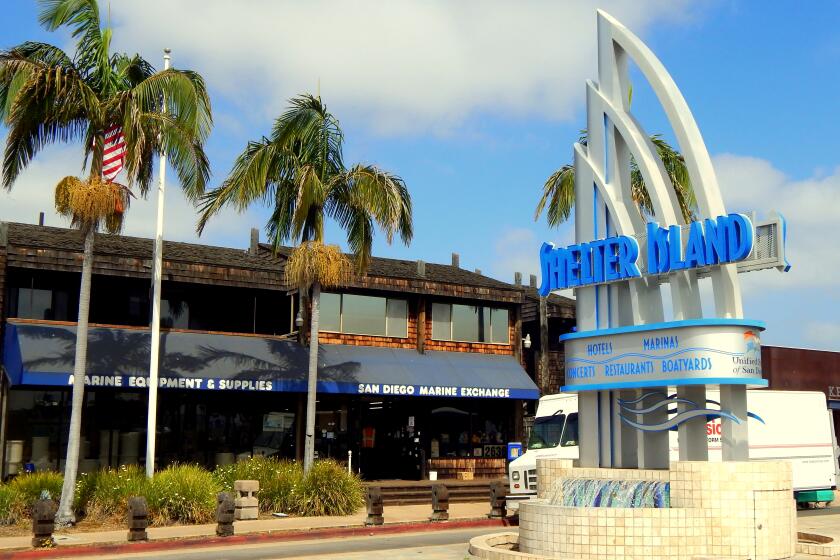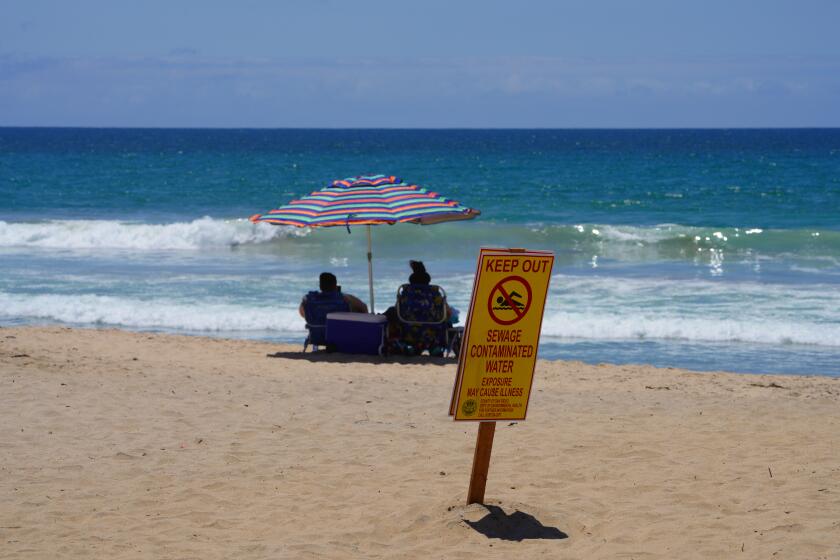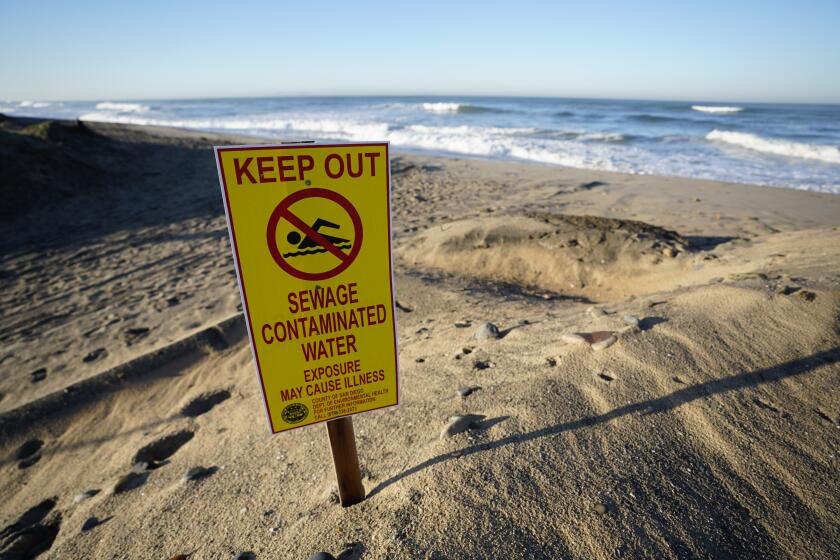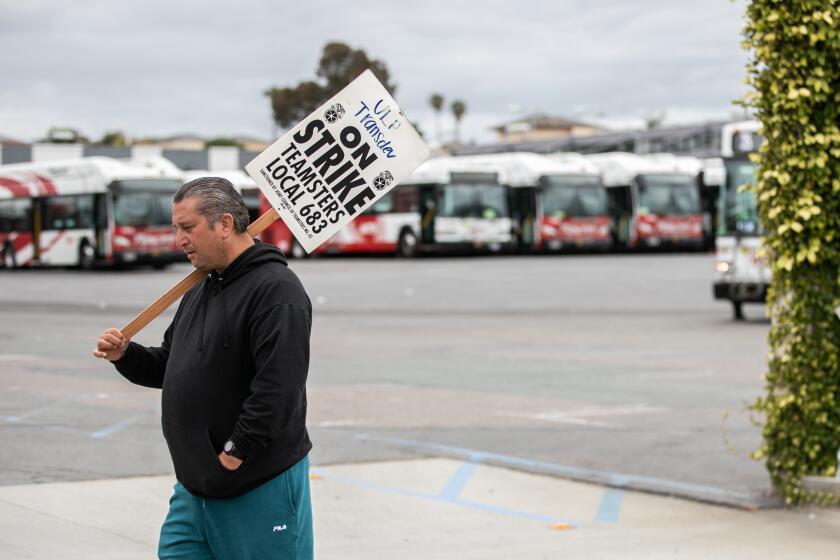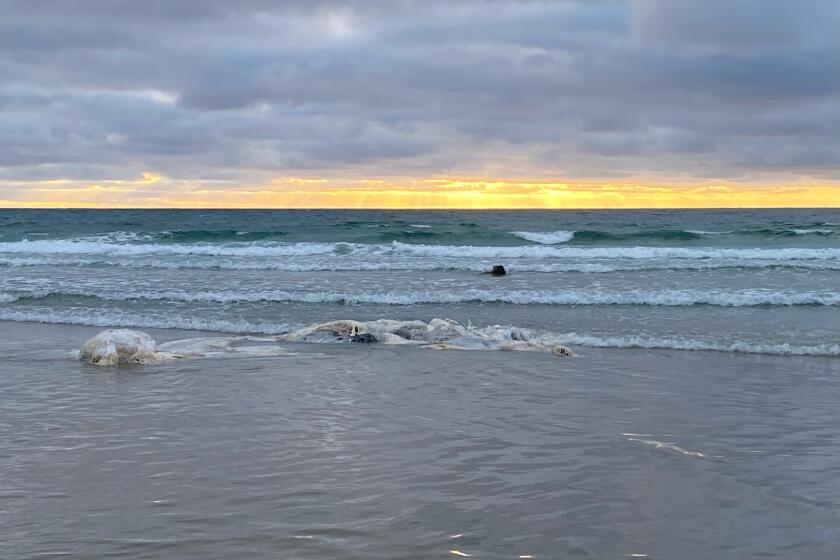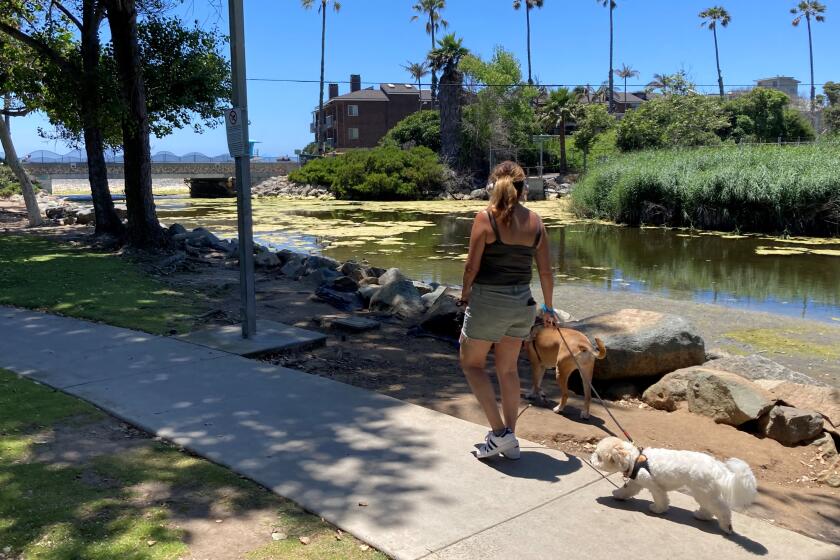Focus: Novel legal strategy underpins sea level rise lawsuits against oil and coal companies
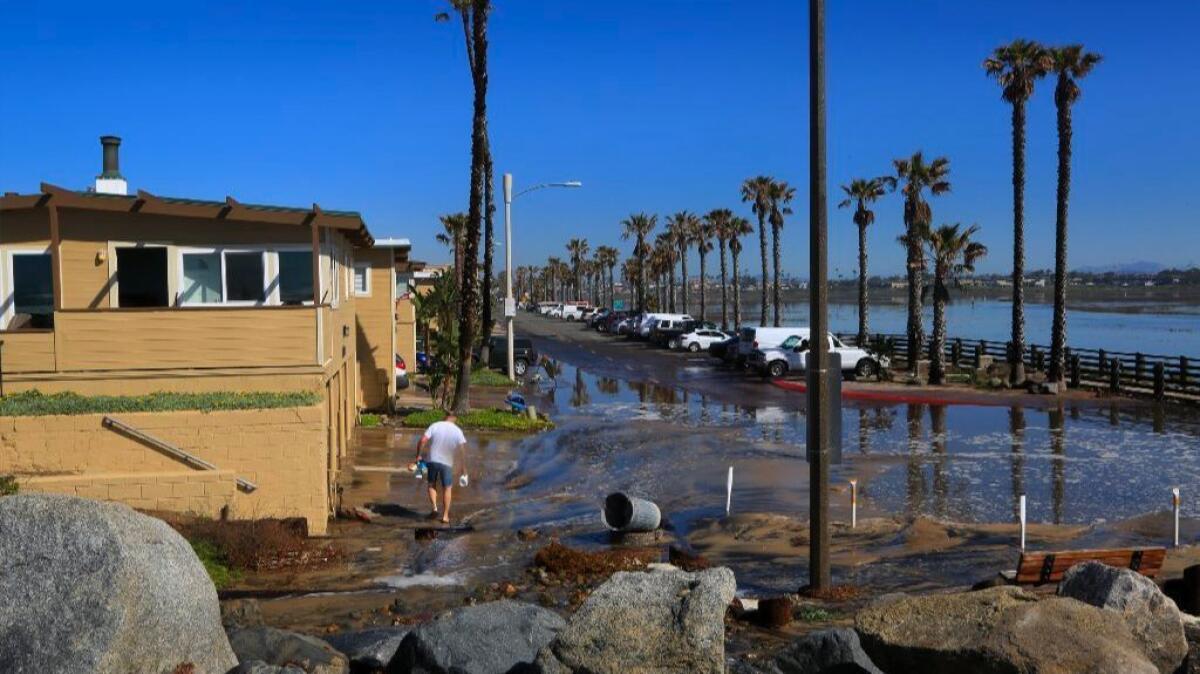
Does a trio of new lawsuits aimed at forcing the world’s largest oil companies to pay for the projected effects of rising seas along California’s coast have a fighting chance?
The litigation is perhaps the boldest attempt so far to test a broad legal strategy — holding corporate America accountable for cashing in on products that have hurt large swaths of the public — on issues pertaining to climate change.
“We’re in uncharted territory here pretty fundamentally,” said Sean Hecht, co-executive director of the UCLA law school’s Emmett Institute on Climate Change and the Environment. “The theory behind it is an interesting one: that essentially, petroleum products should be considered defective when used as directed because of the harms that they cause.”
The three lawsuits, which were filed Monday by the city of Imperial Beach and San Mateo and Marin counties, will likely face significant legal obstacles, according to both critics and legal scholars sympathetic to the municipalities’ cause. And similar efforts to go after large industries for alleged damage to the public, including cases against makers of lead paint and tobacco products, have seen mixed results in the courts.
Product-liability and public-health experts said the new climate-change cases are extremely ambitious in scope, having the potential to set wide-ranging precedent concerning financial liability for forecasted impacts of global warming.
Attorneys for the plaintiffs said they modeled their legal tactics after past efforts to hold accountable cigarette businesses, makers of cancer-causing agents and gas and chemical companies that used methyl tertiary butyl ether (MTBE), a gasoline additive that has contaminated groundwater across the country.
While many industries have won in court and avoided costly payouts, those high-profile cases have brought negative publicity for various companies or even helped change overall public sentiment about a highlighted issue.
If Imperial Beach and the two counties prevail, household names such as Chevron, ExxonMobil, ConocoPhillips, BP and Royal Dutch Shell could be liable for billions of dollars in mitigation costs and punitive damages in coming decades.
The leading industry groups for oil and coal conglomerates — the American Petroleum Institute and the U.S. Oil & Gas Association — declined to comment for this story.
A decisive victory for the plaintiffs could trigger an avalanche of similar lawsuits nationwide. Other local governments could feel emboldened to sue fuel companies for a host of expenses related to global warming, including flood and storm damage, drought-related wildfires and steep increases in air-conditioning bills.
“How to deal with sea-level rise and, in particular, how to pay for it has been a growing concern for communities,” said Victor Sher, an attorney with Sher Edling LLP, a law firm that specializes in environmental cases and is representing Imperial Beach and Marin and San Mateo counties. “There’s nothing that makes this unique to California. I would not be surprised if there are other communities that are interested in this approach.”
The law firm is working on contingency. Neither the local governments involved in the climate change cases nor the law group would say who came up with the legal strategy or which group initiated the collaboration.
“We cannot discuss communications between the county and Sher Edling, including pre-litigation conversations,” said Paul Okada, chief deputy county counsel for San Mateo County. “The county and its board of supervisors have been working on sea level rise issues for years. Our office has also known and worked with Matt Edling, a county resident, for nearly a decade.”
The three new lawsuits are largely based on public nuisance law, meaning the local governments have to prove that fossil-fuel companies have caused special harm to their residents — in this case, costs associated with adapting to sea-level rise. The plaintiffs are also seeking punitive damages.
The most compelling precedent is perhaps a public nuisance lawsuit by 10 California cities and counties against several manufacturers of lead paint.
In 2014, a Santa Clara Superior Court judge order three companies — ConAgra Grocery Products, NL Industries and Sherwin-Williams — to pay a collective $1.15 billion into a fund to clean up old homes that suffered exposure to lead paint. The case was appealed and has been in the courts for 17 years now.
A similar effort involving more than half a dozen cities along the West Coast has taken Monsanto to court to help pay for the costs of cleaning up polychlorinated biphenyls, or PCBs, a global contaminant linked to cancer, neurological damage, thyroid problems and reproductive complications.
Such cases are largely predicated on the idea that corporations knew about the harms of their products but still sold them to continue making profits.
At the heart of the new litigation is a similar narrative that has to a certain extent been bolstered by scientific research as well as recent investigative reporting: Plaintiffs allege that executives of large oil and coal companies knew going back decades that their fossil fuels would warm up the planet — and possibly concealed that evidence. They sold their merchandise anyway and as a result, communities are today bracing for the worst consequences of chronic flooding driven by rising tides from melting glaciers, the plaintiffs said in their lawsuits.
“The notion is you have large corporations with highly developed research-and-development capacities and actual knowledge, frequently by the scientists within the organizations,” said Sher at the law firm. “They advise management and then management decides to ignore what they’re saying.”
Reporting by the nonprofit journalism group Inside Climate News and the Los Angeles Times found that ExxonMobil and other industry players conducted internal research going back to the 1980s that found ties between fossil fuels and climate change.
At the same time, the state attorneys general of New York and Massachusetts have been investigating whether ExxonMobil improperly concealed this knowledge. The company has sued to block those inquiries, and that case is being heard in federal court.
Depending on how far the cases get, the world could learn substantially more about what oil and coal businesses knew and when.
To get the ball rolling, plaintiffs will have to prove that these corporations were a substantial factor in the alleged harms. This process could be trickier than it sounds, as the defendants may argue that complicity in climate change is shared globally by other large industries as well as anyone who drives a gas-powered vehicle or flies in an airplane or flips on the lights.
“The defendants can say, ‘Look, we may have emitted a bunch of (carbon dioxide), but if the only CO2 in the world were ours, there’d be no global climate change, so we’re not a substantial factor,’” said Greg Keating, a professor with the University of Southern California’s Gould School of Law, who has written about climate change.
Lawyers for Imperial Beach and Marin and San Mateo counties said they’ve gone to significant lengths to quantify the greenhouse gases they said are attributable to the fossil fuel companies in question. It could eventually be up to a jury to decide how compelling those figures are, but the quantification strategy is a key part of efforts to get judges to take the lawsuit seriously.
Specifically, they calculate that the defendants are collectively responsible for more than 20 percent of all carbon dioxide and methane emitted between 1965 and 2015. This is a period in time referred to by scientists as the “great acceleration” when a fossil fuel production ramped up, accounting for roughly 75 percent of all historic emission from industry.
Because of recent advances in science, lawyers for the plaintiffs believe they can draw a convincing line from industry activities to seaside communities.
There are a whole host of other highly technical legal arguments that could hamstring the case before it even gets started. But if it clears a few key initial hurdles, the lawsuits could fundamentally restructure the way the country looks at corporate liability.
Twitter: @jemersmith
Phone: (619) 293-2234
Get Essential San Diego, weekday mornings
Get top headlines from the Union-Tribune in your inbox weekday mornings, including top news, local, sports, business, entertainment and opinion.
You may occasionally receive promotional content from the San Diego Union-Tribune.

